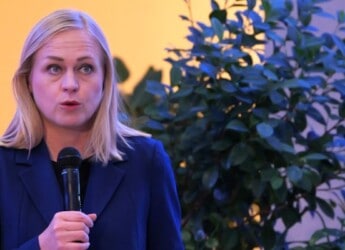|
|
Content Assessment:Power, Control, and Tragedy: Russo-Ukrainian War Update (August 7 - August 13, 2023)
Information - 93%
Insight - 93%
Relevance - 94%
Objectivity - 95%
Authority - 94%
94%
Excellent
A short percentage-based assessment of the qualitative benefit of the post highlighting the recent Ukraine conflict assessments in maps from the Institute for the Study of War
Editor’s Note: The Russian offensive campaign in Ukraine from August 7 to August 13, 2023, has unveiled more than just military strategies and territorial disputes. It has exposed a complex web of political maneuvering, power struggles, information control, and alarming human rights violations. This complex web of interconnected dynamics ranges from the ongoing challenges between Yevgeny Prigozhin and President Vladimir Putin and the crypto-nationalization of the Russian internet giant Yandex, to the deeply disturbing forced deportation of Ukrainian children to Russia. Understanding these dynamics is essential for cybersecurity, information governance, and eDiscovery professionals as they reflect broader issues of governance, ethics, and international law stemming from the ongoing conflict.
The Prigozhin-Putin Challenge
Speculations about the Wagner Group’s withdrawal from Belarus and the collapse of aspects of the deal between Russian President Vladimir Putin and Wagner Group financier Yevgeny Prigozhin following Wagner’s armed rebellion on June 24 have exposed underlying tensions. Putin’s concerns about the threat that Prigozhin poses to his long-term goals continue to manifest, and the likely failure to decisively resolve issues posed by Prigozhin and Wagner adds a layer of complexity to the Russian political landscape.
The Transfer of Yandex
In a move that likely aims to strengthen control over the Russian information space in preparation for the 2024 Russian presidential election, the Kremlin is attempting to crypto-nationalize Russian internet giant Yandex. The possible transfer of Yandex to affiliates of Russian First Deputy Presidential Chief of Staff Sergey Kiriyenko suggests a reward for personal loyalty and a strategic maneuver to consolidate power within the Russian state.
The Forced Deportation of Ukrainian Children
The forced deportation of Ukrainian children to Russia and their placement into Russian military training programs is a gross violation of human rights and international law. The Russian Investigative Committee, under the leadership of Alexander Bastrykin, is reportedly involved in these actions. The motives may be part of a broader strategy to exert control over occupied territories and suppress Ukrainian identity, but the actions represent a new low in the conflict and a humanitarian crisis that cannot be ignored.
The Interconnected Dynamics
These three dynamics— the ongoing challenges between Prigozhin and Putin, the strategic transfer of Yandex, and the tragic forced deportation of Ukrainian children to Russia— are interconnected in a broader pattern of behavior that reflects the strategies, values, and challenges of the Russian state. The Prigozhin-Putin challenge reveals underlying tensions within the Russian power structure, the transfer of Yandex highlights the Kremlin’s efforts to control information, and the forced deportation of children raises serious questions about human rights and the rule of law. The Russian offensive campaign in Ukraine is not merely a military conflict but a complex interplay of political maneuvering, information control, and human rights violations. These dynamics are a stark reminder of the intricate and often opaque nature of power, control, and human dignity in the context of modern warfare. The international community must navigate these complexities with care, commitment to justice, and unwavering support for the principles that define our shared humanity.
Source Note: One of the most accurate and detailed sources for ongoing updates on the Ukraine crisis is the Russian Offensive Campaign Assessment from the Institute for the Study of War. The Institute for the Study of War (ISW) is a 501(c)(3) organization and produces strictly non-partisan, non-ideological, fact-based research. ISW seeks to promote an informed understanding of war and military affairs through comprehensive, independent, and accessible open-source research and analysis. ISW’s research is made available to the general public, military practitioners, policymakers, and media members. Providing a daily synthesis of key events related to the Russian aggression against Ukraine, ISW updates may benefit investigators and litigators as they follow the business, information technology, and legal trends and trajectories impacted by and stemming from the current Russo-Ukrainian conflict.
Assessment and Maps*
Russo-Ukrainian Conflict Assessments – An Overview in Maps
- Institute for the Study of War (ISW), Russia Team
- Critical Threats Project (CTP), American Enterprise Institute
General Assessment Background Info
- ISW systematically publishes Russian campaign assessments, including maps highlighting the assessed control of terrain in Ukraine and main Russian maneuver axes.
- These maps augment daily synthetic products that cover key events related to renewed Russian aggression against Ukraine.
The Russian Offensive Campaign Assessments
- August 13, 2023
- By Grace Mappes, Nicole Wolkov, Riley Bailey, Karolina Hird, and Mason Clark
Key Takeaways
- Ukrainian forces conducted counteroffensive operations on at least two sectors of the front on August 13 and reportedly advanced in the western Donetsk-eastern Zaporizhia Oblast area and in western Zaporizhia Oblast.
- ISW has not observed confirmation that Russian forces have completely withdrawn from Urozhaine and Russian forces likely currently maintain positions in at least the southern part of the settlement.
- The Russian information space is seizing on Ukrainian gains in Urozhaine (in the Donetsk-Zaporizhia Oblast border area) to highlight poor Russian morale and command challenges in the area.
- A Russian warship forcibly stopped and searched a civilian cargo ship en route to the Izmail port in Odesa Oblast, likely as part of a Kremlin effort to curtail maritime traffic to Ukrainian ports without committing naval assets to fully enforce a blockade.
- Russian forces conducted offensive operations along the Kupyansk-Svatove line and attempted to regain lost positions near Bakhmut, in the Donetsk-Zaporizhia Oblast border area, and in western Zaporizhia Oblast, and reportedly advanced in some areas.
- Ukrainian forces conducted offensive operations along the Kupyansk-Svatove line, near Kreminna, near Bakhmut, in the Donetsk-Zaporizhia Oblast border area, and in western Zaporizhia Oblast, and reportedly advanced in several areas.
- The Wagner Group is likely downsizing and reconfiguring to adapt to financial pressure following the June 24 Wagner rebellion.
- Ukrainian partisans claimed to have attacked a Russian military base in occupied Mariupol on August 13.
- August 12, 2023
- By Nicole Wolkov, Angelica Evans, Riley Bailey, Christina Harward, and Mason Clark
Key Takeaways
- Russian milbloggers acknowledged that Ukrainian forces are maintaining a presence on the east (left) bank of the Dnipro River in Kherson Oblast in contrast to previous Ukrainian raids, but ISW does not yet assess that these positions constitute a bridgehead.
- Ukrainian forces continued counteroffensive operations on at least two sectors of the front on August 12 and reportedly made tactically significant advances along the administrative border between Zaporizhia and Donetsk oblasts.
- Ukrainian forces reportedly launched two missile strikes targeting the Kerch Strait Bridge and a drone attack targeting occupied Crimea on August 12.
- Russian forces conducted offensive operations along the Kupyansk-Svatove-Kreminna line, near Bakhmut, along the Avdiivka-Donetsk City line, and in the Donetsk-Zaporizhia Oblast border area on August 12 and made no confirmed gains.
- The Russian Ministry of Digital Development is preparing an amendment to the law on the conscription age that would increase the military service deferment age for IT specialists from 27 years to 30 years, likely in response to concerns about “brain drain” from Russia.
- Russian authorities are reportedly adjusting propaganda language about the war aimed at Russian schoolchildren in Russia and occupied Ukraine.
- August 11, 2023
- By Riley Bailey, Grace Mappes, Angelica Evans, Christina Harward, and Mason Clark
Key Takeaways
- Ukrainian forces made tactically significant advances in western Zaporizhia Oblast and reached the outskirts of Robotyne amid continued counteroffensive operations on at least three sectors of the front on August 11.
- Ukrainian counteroffensive operations appear to be forcing the Russian military to laterally redeploy Russian forces defending in western Zaporizhia Oblast, indicating that the Ukrainian effort there may be significantly degrading Russian defenses.
- Russia’s necessary practice of conducting lateral redeployments to key sectors of the front will likely further weaken Russian defensive lines in aggregate, as both Russian and Ukrainian operations are fixing Russian units to certain sectors of the front.
- The further degradation of defending Russian forces creates opportunities for any Ukrainian breakthrough to be potentially decisive.
- Russian forces appear to be intensifying offensive operations northeast of Kupyansk, likely to draw Ukrainian forces away from more operationally significant areas of the front.
- Russian forces conducted another series of missile strikes in Ukraine on August 11 and targeted a Ukrainian airfield for the second time in the last week.
- Russian sources claimed that the Wagner Group appears to be maintaining a presence at its facilities in Belarus, though the status of its rumored withdrawal to Russian remains unclear.
- The Russian Ministry of Internal Affairs (MVD) is struggling with significant personnel shortages, especially in occupied territories in Ukraine, amid a broader power shift between other Russian internal security organs.
- The Kremlin and Russian Ministry of Defense (MoD) are likely attempting to deflect blame for Ukrainian shelling in Russian border areas onto mid-level officers.
- Russian forces conducted offensive operations along the Kupyansk-Svatove-Kreminna line, near Bakhmut, on the Avdiivka-Donetsk City line, and in the Donetsk-Zaporizhia Oblast area on August 11 and advanced in some areas.
- Ukrainian forces conducted offensive operations on at least three sectors of the front on August 11 and advanced in the western Donetsk-eastern Zaporizhia Oblast border area and in western Zaporizhia Oblast.
- The Russian defense industrial base (DIB) has begun producing “Geran-2” drones, a modified version of the Iranian-produced Shahed-131/136 drone that will likely enable Russia‘s ability to maintain or potentially increase the frequency of Russia’s drone strikes on Ukraine.
- Russian occupation authorities are taking steps to make the upcoming regional elections in the Russian occupied territories appear to be fair and competitive.
- August 10, 2023
- By Riley Bailey, Grace Mappes, Angelica Evans, Christina Harward, and Frederick W. Kagan
Key Takeaways
- The Wagner Group continues to maintain a presence at facilities in Belarus and the status of its rumored withdrawal to Russia remains unclear.
- Wagner Group financier Yevgeny Prigozhin has yet to comment on these speculations either directly or through intermediary sources as he has done previously, suggesting that Prigozhin may not be entirely at liberty to comment on the future of Wagner.
- Ukrainian forces continued counteroffensive operations on at least three sectors of the front and advanced in the Donetsk-Zaporizhia Oblast border area on August 10.
- A Russian milblogger accused Russian military personnel of fabricating or embellishing claims of Russian forces destroying Ukrainian vehicles in Ukraine.
- Russian forces conducted another series of missile and drone strikes in Ukraine overnight on August 9-10.
- The Kremlin is likely attempting to crypto-nationalize Russian internet giant Yandex to strengthen control over the Russian information space in preparation for the 2024 Russian presidential election.
- The possible transfer of Yandex to affiliates of Russian First Deputy Presidential Chief of Staff Sergey Kiriyenko suggests that Putin seeks to reward Kiriyenko for his personal loyalty, particularly following the June 24 Wagner Group rebellion.
- Affiliates of arrested former Federal Security Service (FSB) officer and ardent ultranationalist Igor Girkin continue to explicitly attack the Kremlin on August 10.
- Russian forces conducted offensive operations along the Kupyansk-Svatove-Kreminna line, near Bakhmut, along the Avdiivka-Donetsk City line, the western Donetsk-eastern Zaporizhia Oblast border area, and in western Zaporizhia Oblast on August 10 and made some advances.
- Ukrainian forces continued counteroffensive operations on at least three sectors of the front and advanced in the western Donetsk-eastern Zaporizhia Oblast border area on August 10.
- Russian officials continue to highlight the claimed success of the Russian defense industrial base (DIB).
- A Ukrainian military official reported that Russian forces are co-opting civilian infrastructure for the repression of local populations in the occupied territories.
- August 9, 2023
- By Nicole Wolkov, Riley Bailey, Grace Mappes, Angelica Evans, Kateryna Stepanenko, and Frederick W. Kagan
Key Takeaways
- Speculations about the Wagner Group’s withdrawal from Belarus suggest that aspects of the deal between Russian President Vladimir Putin and Wagner Group financier Yevgeny Prigozhin following Wagner’s armed rebellion on June 24 have collapsed.
- Putin is likely still concerned about the threat that Prigozhin poses to his long-term goals and continues to focus on definitively separating Prigozhin from Wagner.
- Alternatively, Putin may intend for Wagner’s forces to return to Russia in order to facilitate the destruction or restructuring of Wagner.
- The likely collapse of aspects of the Wagner-Putin-Lukashenko deal indicates that Putin has failed to decisively resolve issues posed by Prigozhin and Wagner following Wagner’s June 24 rebellion.
- Russian Defense Minister Sergei Shoigu attempted to justify the recreation of the Moscow and Leningrad Military Districts by reamplifying boilerplate rhetoric posturing NATO as an existential threat to Russia.
- Ukrainian forces continued counteroffensive operations on at least three sectors of the front and advanced in some areas on August 9.
- The Russian veteran community may be attempting to rehabilitate the nominal Russian deputy theater commander in Ukraine, Army General Sergei Surovikin, following scrutiny over his affiliation with the Wagner Group.
- Marchenkov’s interview may suggest that Surovikin and the anti-Gerasimov faction believe there is a chance for Surovikin to return to the frontlines.
- Russian sources claimed that poor safety regulations led to an explosion near the Zagorsk Optical Mechanical Plant in Moscow on August 9, and notably most Russian sources did not suggest that Ukrainian actors may have been responsible for the incident.
- Russian forces continued offensive operations on the Svatove-Kreminna line, in the Bakhmut area, along the Avdiivka-Donetsk City line, along the Donetsk-Zaporizhia Oblast border area, and in western Zaporizhia Oblast and advanced on the Svatove-Kreminna line, north of Bakhmut, and in western Zaporizhia Oblast.
- Ukrainian forces continued counteroffensive operations on at least three sectors of the front and advanced in some areas on August 9.
- Footage published on August 9 further supports ISW’s assessments that the Ukrainian incursion near Kozachi Laheri in the east (left) bank of Kherson Oblast on August 8 was likely a limited raid.
- Russian forces may be moving military equipment through Kazakhstan to Russia, but ISW has observed no geolocated footage confirming these reports.
- Russian officials appear to be setting conditions to justify the possible need to cancel or postpone regional elections in the occupied territories in case of Ukrainian counteroffensive successes.
- August 8, 2023
- By Karolina Hird, Angelica Evans, Nicole Wolkov, Christina Harward, and Frederick W. Kagan
Key Takeaways
- Ukrainian forces appear to have conducted a limited raid across the Dnipro River and landed on the east (left) bank of Kherson Oblast, although it remains unclear whether Ukrainian troops have established an enduring presence on the east bank.
- ISW will continue to offer a conservative assessment of the situation on the east bank of Kherson Oblast until or unless ISW observes visual confirmation of an enduring Ukrainian presence near Kozachi Laheri or other east bank settlements.
- Talks between Russian Foreign Minister Sergei Lavrov and Chinese Communist Party Director of the Office of the Central Commission for Foreign Affairs Wang Yi following China’s participation in the peace talks in Saudi Arabia suggest that China is increasingly diverging with Russia on proposed settlements to end the war.
- Wagner Group financier Yevgeny Prigozhin is using the recent coup in Niger and Wagner’s continued presence in Africa to maintain relevance in the Russian information space.
- Russian forces conducted offensive operations along the Kupyansk-Svatove-Kreminna line, near Bakhmut, along the Avdiivka–Donetsk City line, in the eastern Donetsk-western Zaporizhia Oblast border area, and in western Donetsk Oblast on August 8 and made advances in certain areas.
- Ukrainian forces continued counteroffensive operations on at least two sectors of the front on August 8 and made advances near Svatove.
- Russia continues to draw from its stock of Soviet-era equipment to compensate for equipment losses in Ukraine.
- Russian occupation authorities are preparing for regional elections in occupied areas.
- August 7, 2023
- By Karolina Hird, Grace Mappes, Nicole Wolkov, Christina Harward, and Mason Clark
Key Takeaways
- Ukrainian forces continued counteroffensive operations on at least two sectors of the front on August 7.
- Russian forces and occupation administrators continue to seek to mitigate the impact of recent Ukrainian strikes on logistics nodes along key Russian ground lines of communication (GLOCs) connecting occupied Crimea with occupied Kherson Oblast.
- Russian opposition media outlet Verstka suggested that the Russian Investigative Committee and its head, Alexander Bastrykin, are directly involved in the forced deportation of Ukrainian children to Russia and the forced placement of Ukrainian children into Russian military training programs.
- China’s increasing misalignment with Russia on any settlement to end the war in Ukraine was reportedly evident at the talks in Jeddah, Saudi Arabia on August 5-6.
- The Ukrainian delegation at the talks in Saudi Arabia presented a 10-point peace plan that reportedly included calls for global food security, nuclear safety, environmental security, humanitarian aid, and prisoner releases.
- Ukrainian officials reported that Ukrainian and Russian forces conducted a prisoner-of-war (POW) exchange on August 7.
- Russian forces conducted offensive operations along the Kupyansk-Svatove-Kreminna line, near Bakhmut, along the Avdiivka-Donetsk City line, along the Donetsk-Zaporizhia Oblast border, and in western Zaporizhia Oblast on August 7 and made advances in certain areas.
- The Kremlin continues efforts to portray itself as adequately mobilizing the Russian defense industrial base (DIB) for a protracted war effort.
- Russian occupation authorities continue to use maternity capital benefits to coerce Ukrainian civilians in occupied territories to accept Russian citizenship and increase social control in occupied areas.
We do not report in detail on Russian war crimes because those activities are well-covered in Western media and do not directly affect the military operations we are assessing and forecasting. We will continue to evaluate and report on the effects of these criminal activities on the Ukrainian military and population and specifically on combat in Ukrainian urban areas. We utterly condemn these Russian violations of the laws of armed conflict, Geneva Conventions, and humanity even though we do not describe them in these reports.
Chronology of Maps from August 7 – 13, 2023 – Mouseover to Scroll
Ukraine Conflict Maps – 0807 – 081323 – UpdateReview the PDF of Assessed Control of Terrain in Ukraine and Main Russian Maneuver Axes Maps
See the Institute for the Study of War Interactive Map of the Russian Invasion
Read the latest Ukraine Conflict updates from the Institute for the Study of War
* Shared with direct express permission from the Institute for the Study of War (ISW).
About the Institute for the Study of War Research Methodology
ISW’s research methodology relies on both primary and secondary sources, enabling researchers to develop a comprehensive understanding of the situation on the ground. In order to analyze military and political developments in any given area, ISW’s research analysts must wholly understand the systems of enemy and friendly forces. They must also understand the population demographics, physical terrain, politics, and history of that area. This lays the analytical foundation for understanding the reasons for particular developments and fulfilling their assigned research objectives. ISW analysts also spend time in places like Iraq, Afghanistan, and elsewhere in order to gain a better understanding of the security and political situation and to evaluate the implementation of current strategies and policies. Our researchers compile data and analyze trends, producing a granular analysis of developments in areas of research, producing an accurate, high-resolution, timely, and thorough picture of the situation. ISW’s research methodology guarantees its success and commitment to improving the nation’s ability to execute military operations, achieve strategic objectives, and respond to emerging problems that may require the use of American military power.
About the Institute for the Study of War
The Institute for the Study of War advances an informed understanding of military affairs through reliable research, trusted analysis, and innovative education. We are committed to improving the nation’s ability to execute military operations and respond to emerging threats in order to achieve U.S. strategic objectives. ISW is a non-partisan, non-profit, public policy research organization.
Learn more, get involved, and contribute today.
Additional Reading
- From Dissent to OSINT? Understanding, Influencing, and Protecting Roles, Reputation, and Revenue
- [Annual Update] International Cyber Law in Practice: Interactive Toolkit
- Data Embassies: Sovereignty, Security, and Continuity for Nation-States
Assisted by GAI and LLM Technologies
Source: ComplexDiscovery








































